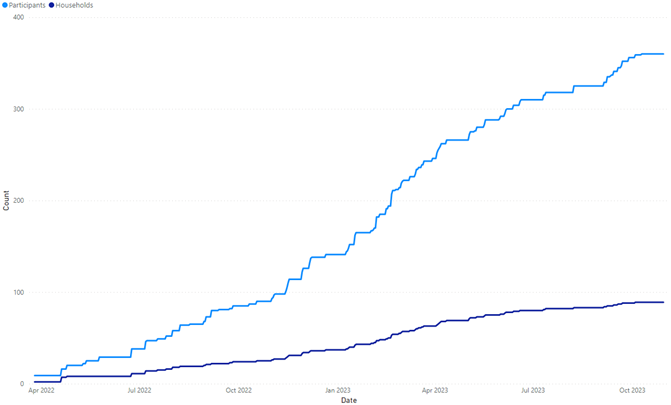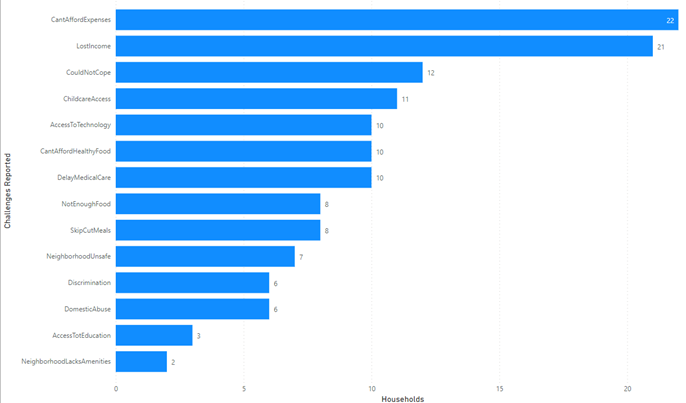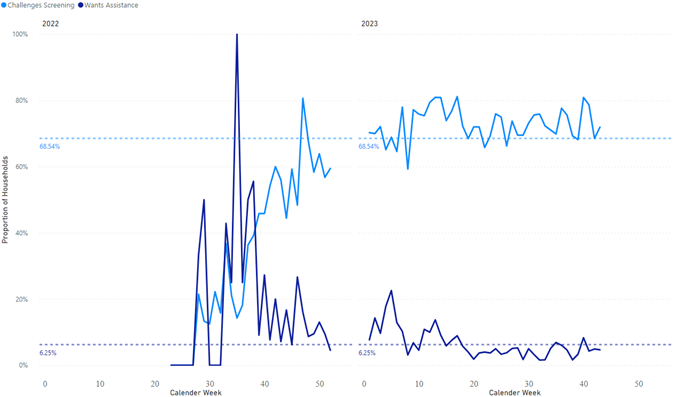Health Equity/Social Determinants of Health
Session: Health Equity/Social Determinants of Health 1
441 - Usage of a mobile device-based social determinants of health (SDoH) screener for rural migrant families
Friday, May 3, 2024
5:15 PM - 7:15 PM ET
Poster Number: 441
Publication Number: 441.513
Publication Number: 441.513

Russell J. McCulloh, MD (he/him/his)
Professor
University of Nebraska Medical Center
Omaha, Nebraska, United States
Presenting Author(s)
Background: Rural migrant agricultural workers and their families face intersecting health disparities due to geography, language, and systemic racism, which contribute to negative impacts on social determinants of health (SDoH). These families require effective means for assessing and addressing SDoH challenges that overcome logistical, cultural, trust, and language barriers.
Objective: To evaluate participants’ adoption of a mobile health (mHealth)-enabled SDoH screening and response program by rural migrant families in Nebraska enrolled in the Mobile Health for Migrant Health (mHealth-4-Mhealth) program. To describe SDoH challenges reported by program participants.
Design/Methods: The Rapid Acceleration of Diagnostics in Underserved Populations (RADx-UP) funded mHealth-4-Mhealth program partners with the Title IC Nebraska Migrant Education Program to provide an mHealth application (app) that includes an SDoH screener in English and Spanish. Screener questions are derived from the PhenX Toolkit. Participating households are asked to screen at least once every 2 weeks. Participants may request assistance for reported SDoH needs from a nurse case manager (systems navigator) through the app. App usage is tracked at the household level, including SDoH screener responses and requests for assistance. To measure program adoption, we summarized the weekly proportion of households completing screening events and requesting assistance. We also summarized SDoH challenges reported by households.
Results: A total of 367 participants from 92 households have enrolled in mHealth-4-Mhealth to date (Figure 1). Households have completed a total of 4,389 SDoH screens since project launch in April 2022. Median proportion of households screening weekly is 69% [IQR 46%-74%]; median weekly proportion of screens with households requesting assistance is 6% [IQR 4%-14%] (Figure 2). A total of 238 (5.4%) of SDoH screens from 33 households requested assistance. Specific SDoH challenges reported varied widely, with the most commonly reported challenges being “cannot afford expenses” and “lost income” (Figure 3).
Conclusion(s): Rural migrant families demonstrate significant and sustained adoption of an mHealth-based SDoH challenges screening app. Migrant families’ willingness to share a multitude of problems and to request assistance using the app highlights our approach as one that is trusted by families and capable of overcoming language and geographic barriers faced by migrant families.



